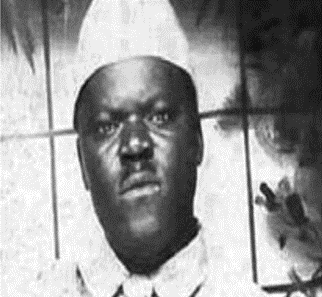US Army World War II veteran Maceo Snipes was killed in 1946 in Taylor County, Georgia because he voted. Snipes was born in Taylor County Georgia on March 25, 1909. His parents, Lula and John, were landowners in Taylor County who owned 202 acres as were his grandparents, Henry and Elizabeth Snipes, who owned acreage in neighboring Schley County.
Snipes, a sharecropper, married Nezzie Joiner and had a stepdaughter named Sallie.
On February 8th, 1943, 33-year-old Snipes enlisted for the United States Army at Fort Benning, Georgia. He was sent to Fort Huachuca, Arizona for basic training and later stationed in New Guinea where he worked as an orderly in the 93rd Infantry, an all-Black unit.
Snipes returned to the United States in September 1945. He was awarded the Asiatic-Pacific Campaign Medal for his service and honorably discharged from the Army with the rank of Private First Class.
After the war, Snipes returned to Taylor County and because of few work opportunities, he resumed sharecropping. He, like thousands of other Black World War II veterans, however, believed he had the right to vote after fighting for liberty overseas.
The campaign for voting rights was already going on in Georgia during World War II. On July 4th 1944 Primus King, a Black registered voter unsuccessfully attempted to vote at the Muscogee County Courthouse. When he was denied that right, he filed suit in federal court and in a landmark ruling in 1945, the court found in King’s favor, calling the exclusion of Black voters to vote in Georgia’s white primary was unconstitutional.
During the Georgia Gubernatorial election of 1946, former Governor Eugene Talmadge said “wise Negroes will stay away from the white folks’ ballot boxes.” Despite the governor’s veiled threat, Snipes decided on July 17,1946 to exercise his right to vote in Georgia’s white primary. Other Blacks registered to vote but Snipes was the only Black to vote in Taylor County that day despite threats of violence.
The following day, July 18, Edward Williamson Cooper, Lynwood Harvey and two other unidentified white men drove to Snipes mother’s farm. Williamson later reported to the authorities that he was there to collect a $10 debt. Williamson called Snipes out of the house while he ate dinner, and then shot him twice with a .32 caliber pistol. All four men then drove away.
Still alive, 37-year-old Snipes was taken to Montgomery Hospital where he succumbed to his wounds two days later because a blood transfusion was required but the hospital claimed no “Black blood” was available to him.
On July 22, 1946, a Coroner’s Jury in Butler, Georgia acquitted Williamson ruling that he acted in self-defense and the killing was not related to Snipes’s voting attempt. Nonetheless, Snipes body was buried in secret in an unmarked grave due to death threats on surviving family members.
Three days later, on July 25, 1946, four young African Americans were lynched by a racist mob in Georgia.
Snipes’ death as well as the Georgia lynchings prompted Martin Luther King Jr., then a Morehouse student, to write to the Atlanta Constitution about the state’s racial discrimination. For King and others in Georgia, these events would encourage their campaign for social justice and particularly the importance of voter rights.

